When it comes to mom taking her to the supermarket, the painting style is basically as follows:
Touch in the east, pull in the west, the lion roars in the east, don’t move, hurt your throat.
This is to buy, that is to buy, increase the cost of shopping, hurt the wallet.
The doll cried, the doll ran, he had to embrace and chase, hurting his old waist.
The scene is comparable to the battlefield.
But in fact, as long as mothers master some small skills, they can make the excited baby have no energy to stir up trouble. More importantly, they can also save a large amount of early teaching fees.
The opportunity to exercise children’s various abilities depends on whether you can grasp it.
Cognitive Enlightenment Period from 1 to 2 Years Old
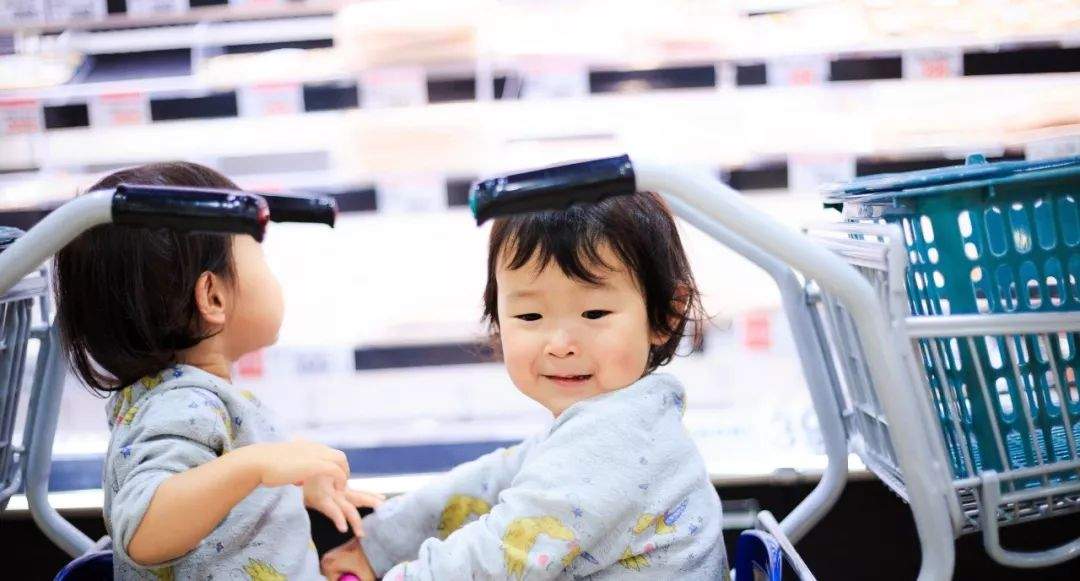
Children in this period are curious, active and energetic. Their main task at this time is to explore the world around them.
1. Sensory stimulation
Watermelons feel slippery and cantaloupes feel thick, right?
Smell, mango or durian, which is fragrant?
Compared with the flat and empty vegetables and fruits on the picture books, the three-dimensional objects in supermarkets can stimulate children’s senses and let children know specific things. After all, seeing is better than hearing.
2. Language Enlightenment
Wow, look at the little fish swimming in the water and the little crab crawling in the pool.
Where is the cart? Who wants to take the cart? Who will push the cart?
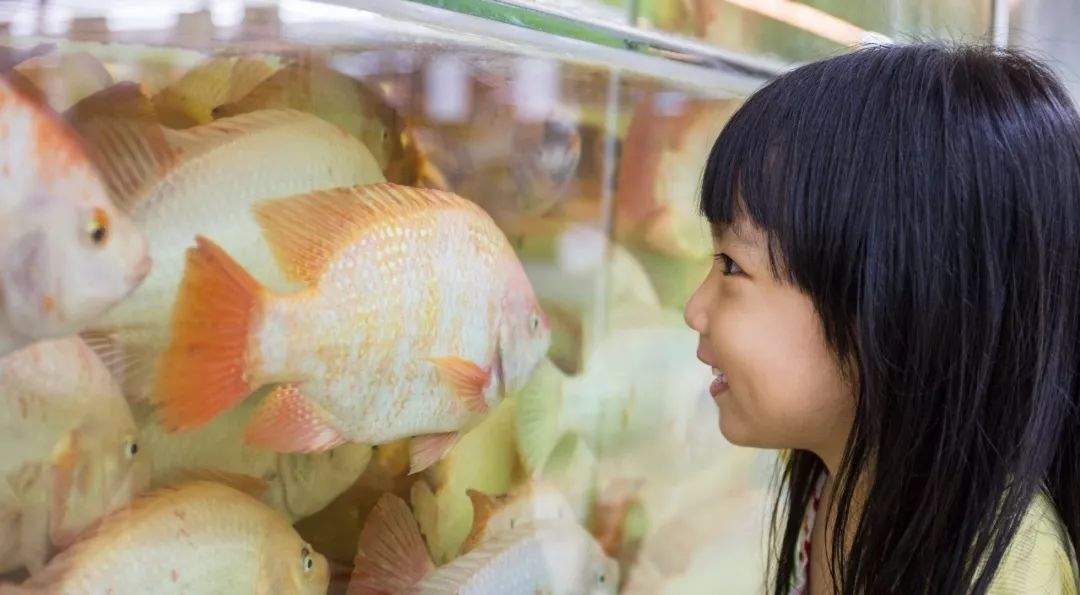
The premise of the language outbreak period is to have a rich vocabulary reserve, so it is especially critical to continuously input words for children.
When shopping in supermarkets, parents can describe more and ask more questions to guide their children to have simple communication.
3. Thinking and observing abilities
Mom wants to buy milk in green packaging. Can you help me find it on the shelf?
We want to buy eggplant. Is it on the top or bottom of the shelf?
Children will be very interested in playing [I said you are looking for] games with them.
At this time, the children will quickly analyze the characteristics of the items in their minds, then filter irrelevant information, search the target shelves, and screen out the target items, so that their thinking and observation abilities will be exercised at the same time.
2 ~ 3 years old brain active phase
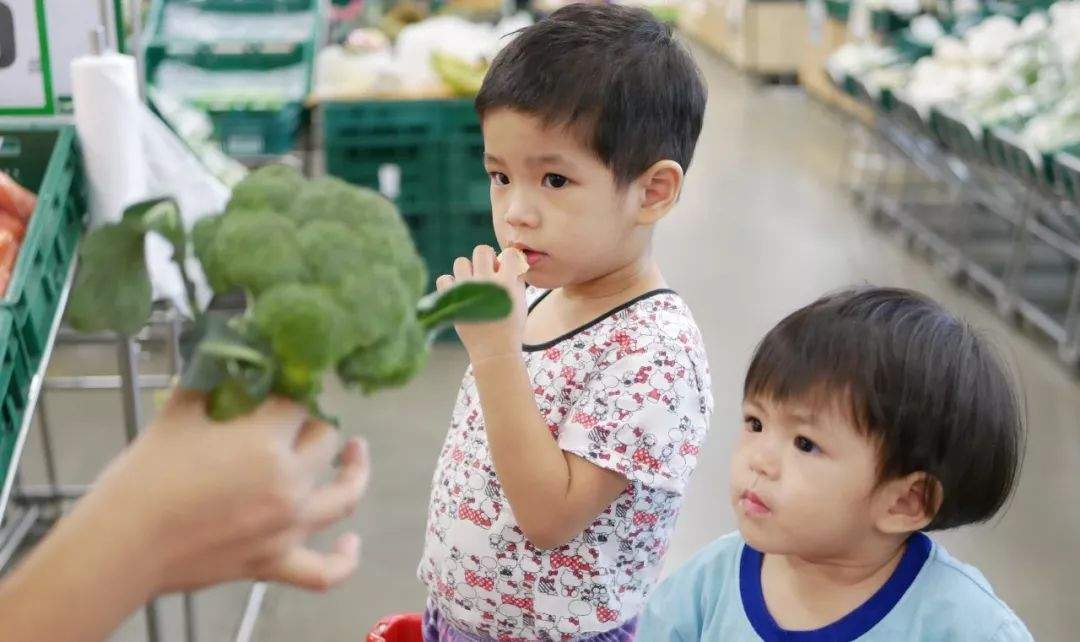
The brain of 2-year-old children develops rapidly, and life is often occupied by the huge fluctuations of their emotions. The main challenge they face is to complete the establishment of independent consciousness and learn to control behaviors and emotions.
1. Awareness of autonomy
Do you want your mother to stir-fry broccoli or cauliflower for dinner today?
Your favorite apple, do you want to buy red or cyan?
Children at this stage like to oppose adults most. Parents can give their children some autonomy appropriately, for example, giving them several choices when purchasing and letting their children help make decisions.
Moreover, parents must do what they say after getting their children’s answers. Respected children will be more enthusiastic and cooperate with their parents’ arrangements.
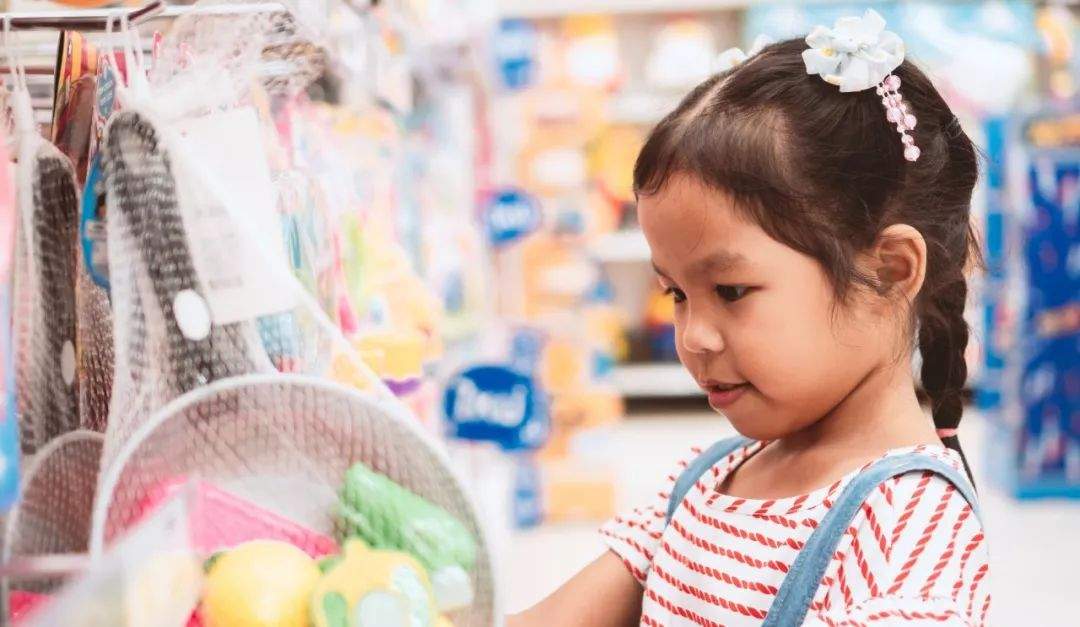
2. Consciousness of Rules
Shall we write (draw) the things we need to buy on the paper together and buy them according to the paper later?
This time we have no plan to buy this, please remember to write it on the list in advance next time.
Children over 2 years old have great personality and often have sudden demands [I want].
In order to avoid the situation that children will not give up until they buy and roll on the ground, parents can make a list with their children before going out so that their children can have psychological expectations.
When buying in supermarkets, strictly follow the list to make children realize what they say and do.
3 ~ 4 years old thinking construction period
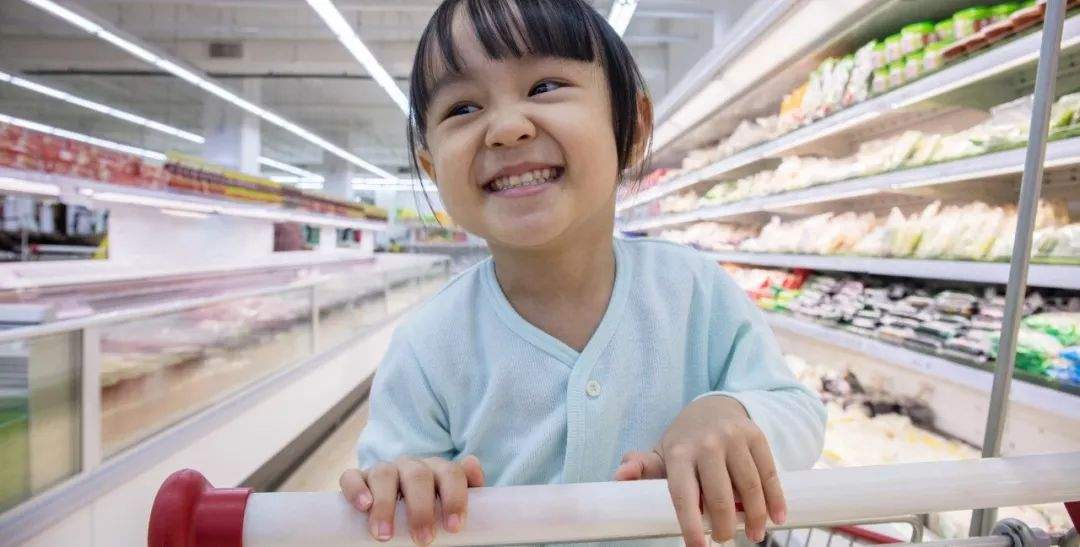
At this age, children’s logical thinking and social skills are continuously developing. The challenge they face is to improve their learning ability and understand cooperation.
1. Mathematics Enlightenment
Today we are going to buy 5 things. Has the baby counted them for me?
Who is the higher price for these two cartons of milk?
When selecting commodities, emphasis should be placed on numbers and quantities, teaching children to recognize price tags, comparing the sizes of numbers, calculating quantities, etc., which is very helpful for children’s mathematics enlightenment.
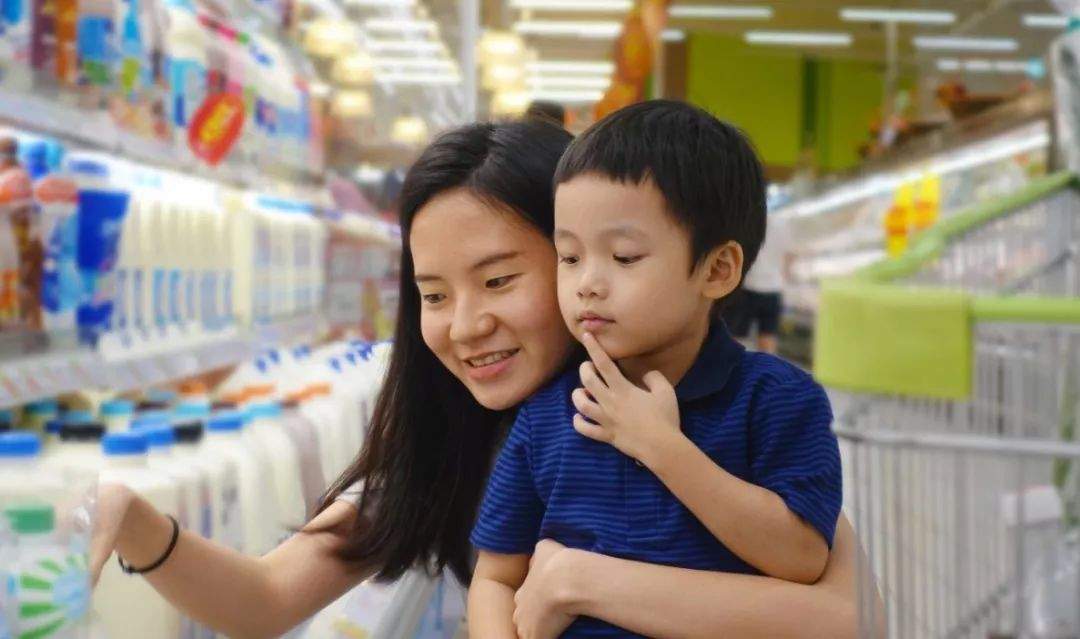
2. Money Education
The baby can help the mother pay the aunt so that we can carry these things home.
Tomatoes bought today are on sale, so we still have 3 yuan left. Next time the baby comes to the supermarket, he can use it to buy things he likes.
Although mobile phone payment is popular now, parents are still recommended to pay in cash so that their children have a basic understanding of money, such as distinguishing the most basic monetary units.
Let the child help with the check-out, feel the process of [money and things are easy to exchange], and give the child a few dollars for free control, so that the child can establish the concept of financial management from an early age.

3. Social skills
Please help your mother take this bag of vegetables and weigh it!
Can you ask your aunt at the store to help you take down the box at the top of the shelf?
Different from the relatively closed small environment at home, supermarkets are relatively open places, similar to small societies.
Children can deal with supermarket staff and learn to get along with people here. In this process, children can be taught to say polite words such as “hello”, “Thank you” and “Goodbye”.
However, if the child is unwilling, never force the child.
Pre-school Enlightenment Period from 5 to 6 Years Old
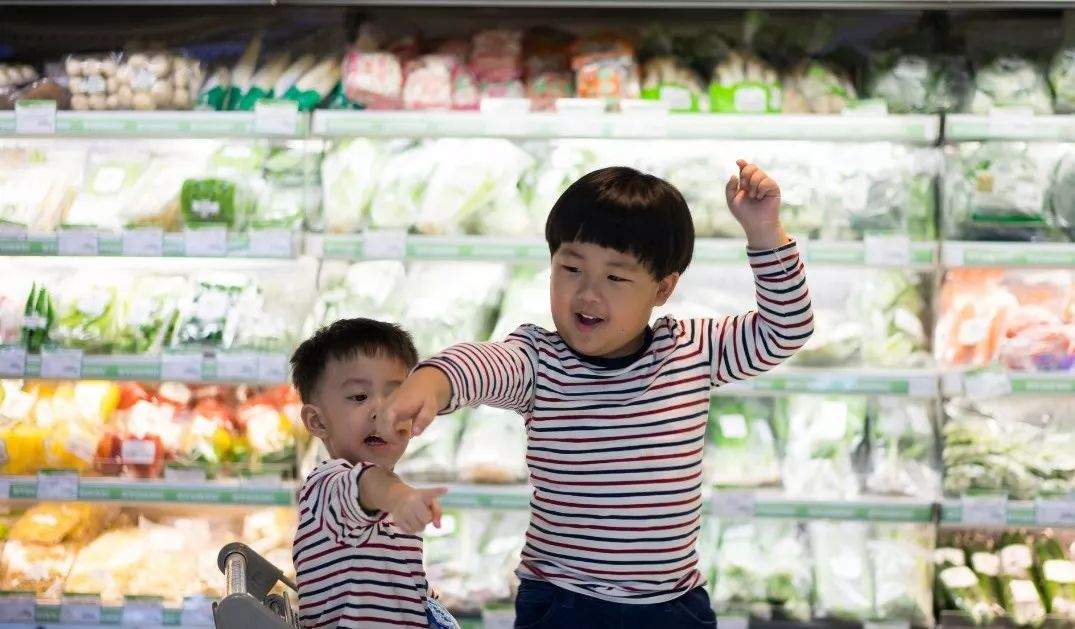
Children at this stage have been able to understand their parents’ specific requirements and rules. Children begin to enter the preschool stage when they are young and young, and their cognitive ability and mobility have reached a higher level.
1. Literacy enlightenment
The what things on this sign are on sale?
Is this milk the XX brand we often drink?
Supermarket billboards and merchandise packages have obvious names, with beautiful and large fonts, making it easier for children to recognize them.
Compared with the dullness of books, children who are in a sensitive period of writing often enjoy moving literacy into their lives.

2. Domestic assistance
Can you help with this?
Which floor of the refrigerator should milk be placed on? Can you put it on for mom?
Parents can prepare an exclusive shopping bag for their children and let them help carry it. This can enhance their children’s sense of participation, cultivate their sense of responsibility and let them know that every member of the family needs to contribute.
After getting home, children can also participate in which items are put in the refrigerator and which are put in the cabinet, and it can also reduce the trouble that children have to ask their parents every time they look for things.
Although supermarket early education is interesting, these things cannot be ignored.
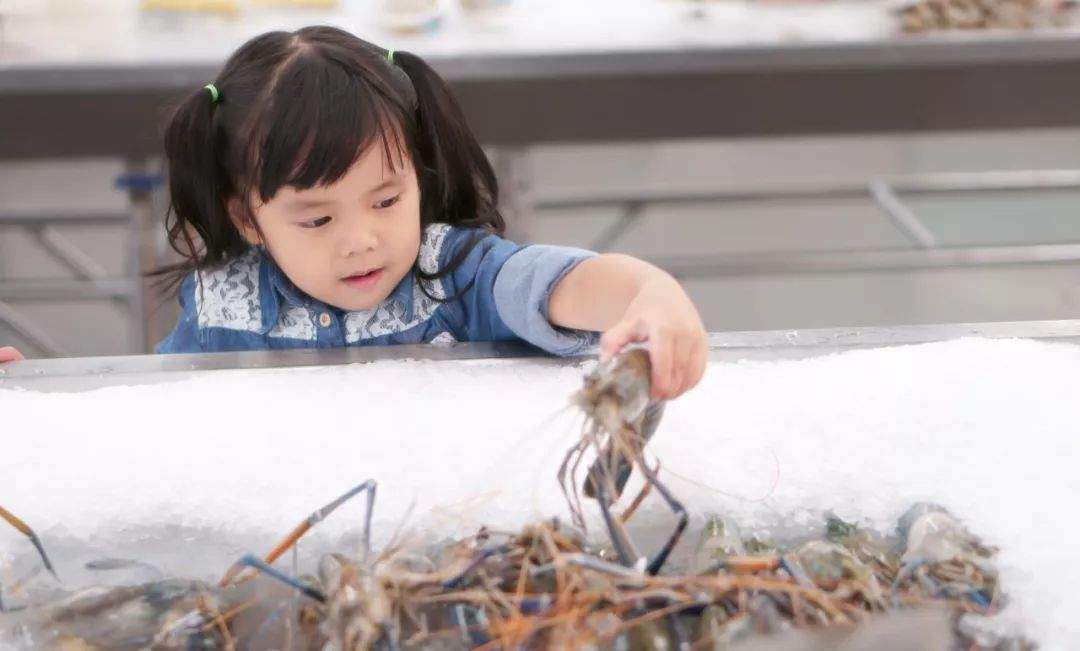
Although supermarkets are very suitable for parents and children to have parent-child interaction, if the following problems are not paid more attention, they will probably affect the effect of early education and even hurt children.
1. Safety First
Escalators, shelf gaps, freezer doors, etc. all need special attention. And parents must always follow their children to avoid getting lost.
Step 2 Avoid peak crowds
Parents can choose to go to supermarkets in their spare time in the morning and afternoon to ensure room for cognition and interaction.

3. Take care of children’s emotions
Shopping in supermarkets should not take too long, interaction should not be forced, and children should be in good condition.
4. Pay Equal Attention to Cognition and Rules
Parents should strictly let their children abide by the basic rules such as returning the wrong things with their own hands and not opening the goods that have not been paid for. At the same time, we should also pay attention to avoid affecting others, not getting in the way, not making loud noises.
Life is the most vivid learning class, and what can what impress children more than personal experience?
Having said so much, I believe you have all got it, so take the children to stroll tomorrow.
